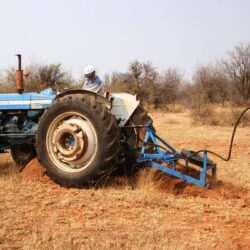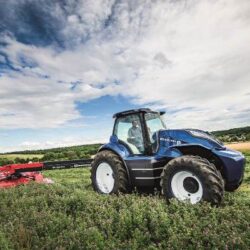In these articles we look at the importance of keeping records as part of farm management, no matter how small or large your farming business may be. In the previous article we look at the filing system of Production and Marketing. In this article we look at Management and touch on Financial and General.
A quick recap on the real benefits of doing farm admin diligently even though you may not feel like it. Farming is not some kind of joke occupation; it’s a meaningful job and it is your business. No business can survive without proper administration and the necessary attention to record keeping.
Pooh poohing the finances and the admin of my own farming business was my greatest mistake. I thought my skills were better employed out in the pastures, in the calf pens, on my veld plant transects, in the pit, vaccinating, inseminating…I’m sure you all get the drift.
My herd admin was impeccable because I could pore over the herd data for hours without getting bored. I could check animals all day and stay up all night with a difficult calving or sick babies. But business admin was a job for other people; husband, book-keepers, clerks, bankers, accountants…whoever.
Secretly, and sometimes not so secretly, I thought I was superior. I thought someone who could milk cows, grow decent pastures, have the lowest calf mortality in the district and superb heifers was possibly better, and certainly more interesting, than a clerk or a bookkeeper. Let the boring people do the boring work.
I was very, very wrong, I was definitely arrogant, and I learnt a hard lesson. Learn from my mistakes; you don’t have to make them. I plead with you not to make them. Farming can be very unforgiving of mistakes and I should know.
MANAGEMENT
The management file holds the business plan which is a working document and the road map of your business, says our management consultant, Mike Cordes. The management file contains the sections listed below.
The Asset register has two sections and lists and describes everything you own.
- Fixed assets include: the size of your farm, the area under crops (dryland and irrigated), grazing land, buildings and sheds, fencing, cattle dips and other fixed improvements. Long-term leases can be listed on this register.
- Movable assets include: vehicles, tractors, equipment, stationary engines, pumps, irrigation systems, livestock, stock on hand (fertiliser, seed, diesel, packaging material, spares) and share certificates if you are a co-op member.
Annual financial statements
Even though your turnover may not warrant an auditor, it will still benefit you to operate with your future in mind. The annual financial statement is a summary of what your business did in one year. It will show all the expenses, all the income, the profit or loss you made, the assets you have and the solvency of your business.
You need the annual financial statement when you want to, borrow money from the bank for a production loan ahead of your crop season, lease equipment or apply for funding or a subsidy.
farm management
If you don’t have a bookcase with open shelves make one using bricks and planks. This one is fairly big – it could have been smaller but sawing the planks would have taken me more time
Insurance
Farmers generally insure at least some of their assets because of the high-risk nature of the job. The trouble is that insurance is expensive and many small-scale commercial farmers can’t afford it.
There is talk about making insurance more affordable in the sub-region so let’s see what business comes up with. In the meantime, feet on the ground, eyes on the lands and the herd, ears to your local network so that you have prior warning of disease outbreaks and rigorous management works well when money is tight. Actually, it works well even if your cash flow is pretty good.
Insure if you can afford it. It makes you feel safer and it does protect you against loss. But never forget to read the fine print. It would be devastating to find that you are not covered when you lose 15 cows to a lightning strike because in the fine print “Acts of God” are not covered in relation to livestock (for example).
Licences, registrations and other official documents
File them – it’s 100% better than not being able to find them.
Contracts
Any agreements you make with someone who buys your produce or a contractor you have taken on for specialist work like drilling a borehole. Keep all the agreements so that you have recourse in case of an argument or non-payment.
Staff
File relevant information about your staff including letters of appointment, job description, salary slips, leave forms, warnings, pension payments and medical information.
Vehicles, equipment and machinery
This is a place for manufacturers’ guarantees, detailed descriptions of vehicles and equipment, servicing and repair records and fuel consumption.
FINANCIAL
In the financial file are the bank statements, tax returns, debtors (who owe you money) creditors (businesses you must pay), income and expense budgets and cash flow projections.
GENERAL
Under general, you can file information about your animals and your crops, your contacts, articles you find useful and need to refer to, pesticide information and so on.
Some of these files or sections of files may not be necessary for your operation so leave them out. You know what the important things are – do them.




